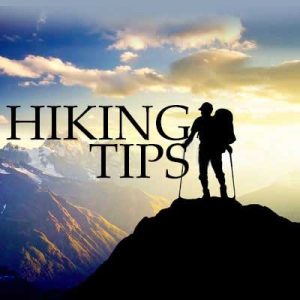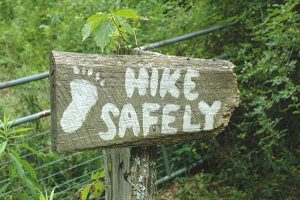Hiking advice for a carefree enjoyment of nature
Spending time outdoors and physical activity are among the most interesting hobbies. It is the best invested time that brings multiple benefits, both for the soul and the body. However, in order to talk about these benefits and enjoy our memories and photographs, it is important that all goes well, i.e. without unwanted complications and accidents. So, I advise beginners to be informed and well prepared before any hiking activity.
 Some of the basic things you should consider are the weight and length of the climb and an estimate of your health condition and physical readiness. Choose your hiking activity carefully. Otherwise it can happen that because of the beautiful pictures on the internet advertizing a hiking activity and/or someone convincing you, you go for something you’re not ready for. As much as nature can be beautiful and challenging, that much ruthless and unforgiving it can be, if you make a wrong assessment.
Some of the basic things you should consider are the weight and length of the climb and an estimate of your health condition and physical readiness. Choose your hiking activity carefully. Otherwise it can happen that because of the beautiful pictures on the internet advertizing a hiking activity and/or someone convincing you, you go for something you’re not ready for. As much as nature can be beautiful and challenging, that much ruthless and unforgiving it can be, if you make a wrong assessment.
Going with a hiking club is much easier and you will get plenty of information from the guide. Just pay attention: some guides can estimate an action as much easier than it really is (“It is only 20km, that’s nothing”). If you organize it yourself, adjust the tempo and planned kilometers to the weakest person in the group and inquire with the local hiking association about the configuration of the terrain and tips and tricks.
Weather is an important factor that can affect the equipment you wear, the rate of progression, but also the mood and enthusiasm.
Equipment also largely determines the quality of the time spent, and comes in handy in unplanned circumstances. Given that this is a broad topic, we will deal with it in more detail in some of my future blogs.
Here is some hiking advice applicable to various types of activities – depending on the number of days, season, action weight and environment – good to read and consider. What does not harm you, can only be of benefit.

- Always try to stay part of the group when hiking. Any separation, not to mention hiking alone, can have serious consequences in the event of an accident.
- Drink water in sufficient quantities to prevent dehydration. Take plenty of water with you and don’t rely too much on secondary sources.
- • Make sure you bring energy bars and/or appetizers (hazelnut, walnut, almond …). It is more beneficial to eat small amounts more often and provide a supplement of sugar, fat, protein, rather than wait for a big meal when the body has already used up inventories.
- If hiking on your own, tell someone about your plan.
- Carry and use sunscreen; clouds, forest and mountains can be deceptive when it comes to the amount of sunshine you are actually being exposed to.
- Check your equipment before setting off.
- If you plan a longer stay, check the first aid box, equipment for sleeping and lighting fire.
- Leave cotton clothes at home.
- Wear bright-colored clothing and avoid military suits (they are made NOT to be seen, which is great, but not in these circumstances).
- Wear layered clothing (strongly advised by Nada Macura) and have at least one piece of dry clothing with you.
- Bring personal documents; a good idea might be to take photos of your documents, in case you lose them.
- Never wear new shoes when hiking, first try them for short walks around the block.
- Short hair is great for spending time outdoor, you will minimize perspiration and not have a problem with insects. If your hair is not short, tie it in a ponytail.

- Always stay on the marked path.
- Never climb a waterfall.
- Carry a whistle (especially children and elder hikers).
- Do not rely too much on cell phones in the wilderness.
- In case of lightnings, it’s not a good idea to hide under a tree.
- Take your trash with you!!!

Leave a Reply